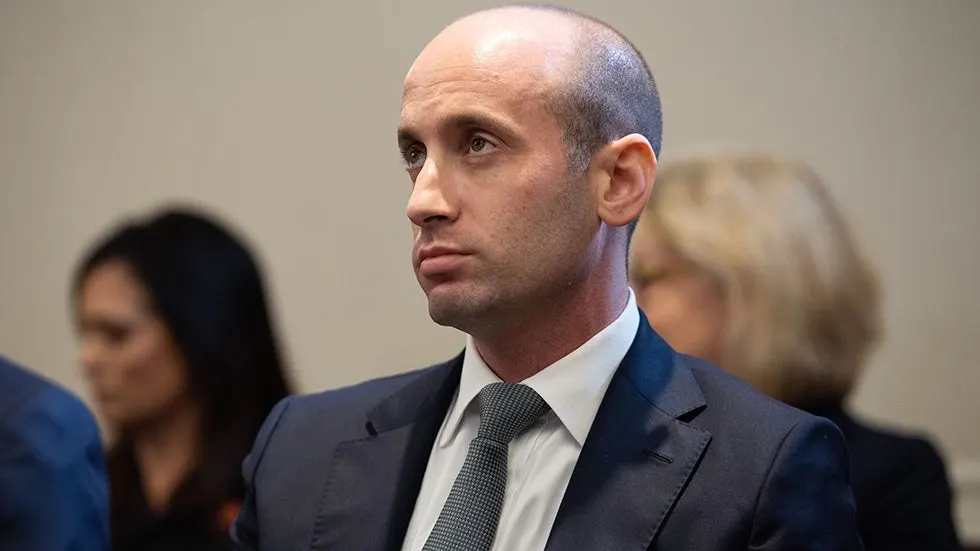a recent development, former senior advisor to President Trump, Steven Miller, has taken a strong stance against the Biden Administration’s immigration policies and its legal actions against Texas. Miller, also the founder of America First Legal, is threatening legal action against Texas but not for the reasons one might expect. While Miller expresses concern about the disenfranchisement of voters, he emphasizes that the Biden Administration’s approach to immigration is causing a crisis in Texas and across the nation.

Biden Administration’s Immigration Policies Under Scrutiny
Steven Miller, a prominent figure from the Trump era, has raised serious concerns about the Biden Administration’s handling of immigration. In a recent interview, Miller criticized the administration for what he perceives as a lax approach to border security, leading to a record influx of illegal immigrants. Miller contends that the Biden Administration is prioritizing the entry of illegal immigrants while suing Texas for attempting to address the crisis on its own.
Record Numbers of Illegal Immigrants and Low Deportation Rates
Miller points out that December witnessed the highest number of illegal aliens entering the United States in its history, reaching nearly 300,000. This follows a series of record-setting months with consistently high numbers. Concurrently, Immigration and Customs Enforcement (ICE) deportation rates have hit record lows, raising questions about the effectiveness of the current administration’s immigration policies.

Texas Faces Legal Action Despite Addressing Immigration Crisis
Despite the state of Texas taking measures to address the immigration crisis within its borders, including filing lawsuits and implementing executive orders, Miller asserts that the Department of Justice (DOJ) is suing Texas. Miller suggests that the Biden Administration’s legal actions against Texas exemplify a contradiction in their approach, emphasizing the severity of the crisis that the state is grappling with on a daily basis.
Backlog in Immigration Cases and Impact on Cities
The backlog of immigration cases has reached unprecedented levels, with an estimated 5 million cases awaiting resolution. This backlog, coupled with the ongoing influx of migrants, poses significant challenges to the immigration system. The interview highlights the strain on cities, with New York City receiving six migrant buses despite Mayor Adams’s executive order specifying conditions for drop-offs.
Mayor Adams’s Executive Order Faces Challenges
Mayor Adams’s executive order, aimed at regulating the drop-off locations and avoiding overtaxing resources, faces challenges as buses continue to arrive. The discrepancy between the executive order and the reality of additional buses arriving underscores the complexity of managing the current immigration situation at both local and national levels.
Republican Call for Congressional Action
Miller calls for a more robust response from Republicans in Congress, urging them to address immigration issues daily. He emphasizes the need for comprehensive action, including criminal removals, addressing sanctuary cities, and reinstating various immigration policies that have been rolled back. Miller contends that a daily focus on immigration matters is essential to counter the crisis effectively.
The Urgency of Congressional Involvement
The discussion underscores the urgency of Congressional involvement in addressing the immigration crisis. Miller suggests that a more proactive approach, with daily legislative action, is necessary to combat the Biden-sponsored border invasion effectively. He criticizes what he perceives as a chronic underreaction to the severity of the situation, calling for immediate and sustained efforts to restore order.
Conclusion: A Call for Immediate Congressional Action
As Steven Miller threatens legal action against Texas for its disenfranchisement of voters and criticizes the Biden Administration’s immigration policies, the urgency of Congressional action becomes evident. The immigration crisis, marked by record numbers of illegal entries and a significant backlog in cases, demands a comprehensive legislative response. The interview highlights the need for a nuanced and persistent approach to address the complexities of the current immigration landscape.**
